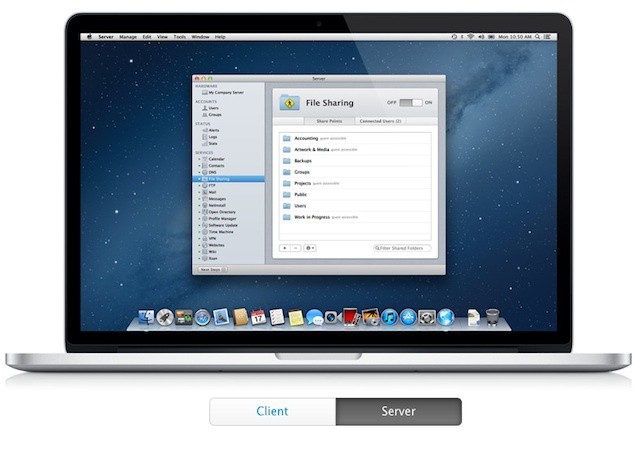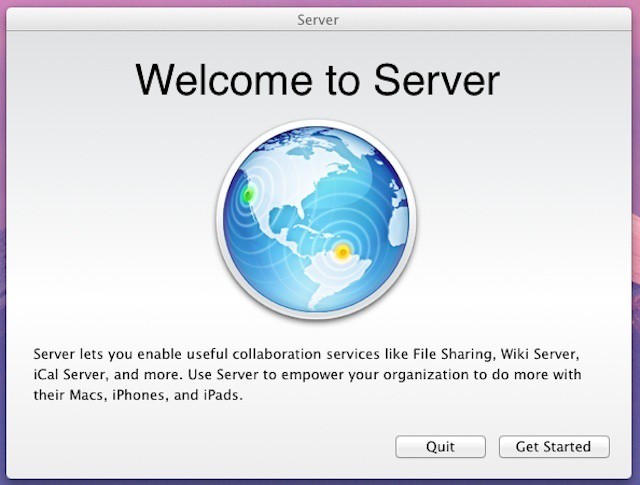OS X Server has always been something of a bargain compared to the various flavors of Windows Server. Unlike Microsoft, Apple never focused on a client access licensing model in which organizations must pay for the server software itself plus additional licenses for users or devices that connect to it. Apple also doesn’t break OS X Server down into multiple variations each with its own features, licensing needs, and upgrade limitations.
When you buy OS X Server, Apple gives you everything from file sharing to Internet and collaborative services like wikis and internal messaging through Mac and iOS device management. If you start as a small business with a single basic server and eventually grow to the point where you need to support and manage dozens or hundreds of Macs, PCs, and mobile devices, there are no limits imposed on licensing or data migration.

![Beyond The Big Announcement: What IT Pros Want To Hear At WWDC 2012 [Feature] What are IT professionals and business users looking for at this year's WWDC?](https://www.cultofmac.com/wp-content/uploads/2012/06/2775460696_27b1aef416.jpg)
![Free & Cheap Ways To Become A Mac IT Master [Feature] Beyond the classroom, there are some amazing Mac IT training resources](https://www.cultofmac.com/wp-content/uploads/2012/05/training_center_apple.jpeg)

![The Crucial Skills Every Mac IT Pro Needs [Feature] Mac IT specialists need a unique set of skills and knowledge](https://www.cultofmac.com/wp-content/uploads/2012/05/2775460696_27b1aef416.jpg)

![Thousands of Macs In The Enterprise – How The Big Companies Roll [Feature] Managing hundreds or thousands of Macs in big companies requires the right skills and the right tools](https://www.cultofmac.com/wp-content/uploads/2012/04/2775460696_27b1aef4161.jpg)


